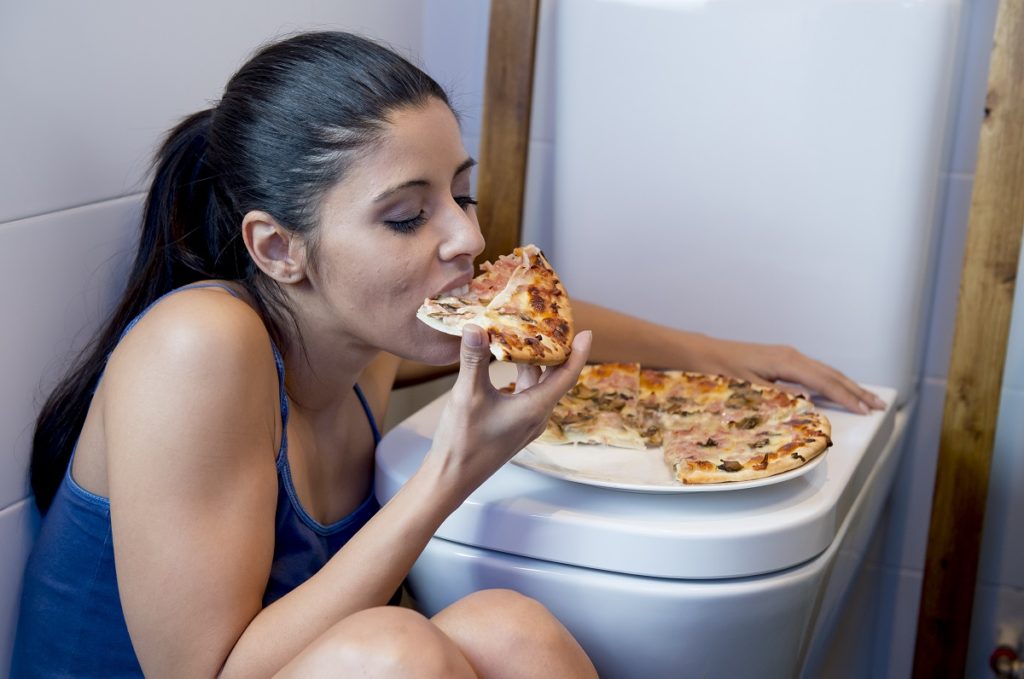The global health crisis we’re facing right now is understandably causing a lot of stress and anxiety. If you have an eating disorder or are living with one, you probably have some questions and concerns about the illness.
While access to an eating disorder center or bulimia treatment plan in Westport, CT or Provo, UT is easy under normal circumstances, the days we are living in now are far from normal.
We have heard your concerns and have written down our answers to them with the help of eating disorder therapists and experts.
1. Will an eating disorder affect my immunity?
A person with an eating disorder does not automatically mean he or she has lower immunity. However, if you are concerned about your immunity, it is best to speak with a healthcare professional.
2. In light of the gravity of the situation, I feel like my eating disorder pales in comparison. What should I do to take care of myself?
Eating disorders are somehow a form of escape or coping mechanisms in light of the stresses in life. Simply because the focus has shifted globally to the threat of the coronavirus doesn’t mean that your eating disorder is less important. Your condition still deserves treatment and support even at this time.
Continue to take care of yourself and your health — both physically and mentally. Taking care of yourself and ensuring your safety is now more essential than ever.
3. Since we’re on lockdown, what do I do if I can’t see my therapist?
While it isn’t exactly a replacement for actual in-person therapy, consulting with your therapist over the phone or through virtual means should suffice.
If you haven’t made arrangements with your therapist yet, do your best to reach out to them and ask what plans they have in place.
4. What should I do if I cannot get my regular treatment and check-ups?
In light of the COVID-19 threat and the lockdown, services and establishments deemed non-essential are likely to be reduced. This is why you must reach out to your therapist to come up with a contingency plan for this season.
If meds are a concern and you cannot go out to buy your prescriptions, you can ask someone to buy them for you or see if the pharmacy offers delivery services during this time.
5. What should I do if I don’t have easy access to my safe foods and brands or ones that I need for my meal plans?
Make an inventory of what you have in your pantry and cupboard. Identify which food items are safe, challenging yet manageable, and risky.
Plan your meals as far ahead as you can with the items you have on-hand. It is harder to gather non-perishable food in a lot of areas and planning as far ahead as you can will help you gradually gather all the food you need.
If you feel that meal planning and food availability is causing you a greater deal of anxiety which could lead to purging or overdoing your exercise, seek accountability and take note of certain techniques that could provide the necessary distractions.
6. How do I resist the temptation of binging if I or my housemate is stockpiling food?

While a meal plan under normal circumstances is effective, certain measures have to be taken into consideration during this time. Perhaps the temptation to binge is rooted in boredom, loneliness, anger, stress, or exhaustion.
Make a list of distractions and other things you can do that will help you deal with these feelings and hopefully take your mind off eating. Activities, like reading, doing household chores, watching Netflix, or playing games, can help keep your mind off it.
7. How should I handle the challenges of going to shops outside my comfort zone or asking other people to buy food for me?
Understandably, it can be scary to put your food shopping in another person’s hands or to go to shops outside your comfort zone. However, if you talk to someone you completely trust about your concerns, it may be beneficial to you since it is harder to get ahold of certain food supplies now, given the restrictions on movement.
You could also consider buying food online. Your community might also have some sort of program where volunteers can go and make food purchases on your behalf. If you have people going to shops for you, you can be on the phone with them while they do your shopping.
Work with whatever is more comfortable for you given the present circumstances.
8. What if self-isolation is a trigger?
If self-isolation looks to be a potential trigger for you, try to incorporate some sense of normalcy to your present situation. Establishing a routine can help bring structure and order to your day. It also gives you a sense of control over your schedule and activities.
For instance, if you are among those who are fortunate enough to be doing remote work, set a daily and weekly schedule that you can follow. Treat your day as you would normal working days pre-lockdown period.
If you, however, do not have anything to do at this time, do your best to come up with regularity in your day-to-day schedule. Get up at a certain time, exercise, have breakfast, take a shower, do your chores, anything that will keep you focused on other things.
We hope you find these answers helpful in your situation. Keep in touch with your therapist and care group regularly for accountability and support.




